We love enriching peoples’ lives with plants at Good Earth Plant Company. We live for it! One of the ways we do this is sharing our tips and dropping some knowledge on you. Over the last year, so many people brought plants into the homes and their lives for the first time during the pandemic. It’s one of the most positive outcomes of a not-so-positive experience.
Over many years, we’ve gotten a lot of questions about plant care, and we’ve also gotten some “tips” ourselves. I’m putting “tips” in quotes, because so many of the things we’ve heard need some serious correcting. Calling them misinformed is the most polite description I can come up with. Some of these plant care urban legends are downright crazy and will damage your plants or cause other undesirable results.
After four decades, I’ve heard a lot of these urban plant legends. But I wondered if I’d missed any along the way. So I’ve asked my workplace greenery colleagues across the U.S. to give me their best. Boy did they come through! It was tough to choose a Top Ten, but that’s why I’m the Eco-Warrior in Chief.
Top Ten Urban Plant Care Legends

Choose plants with shiny leaves naturally if that’s what you like. Don’t try to shine them like shoes! Photo: Daria Shvetsova
Using egg whites to make plant leaves shiny. Mayonnaise is another suggestion that comes up. Maybe the leaves will shine, but plant leaves ‘breathe’ and any substance on them is like strangling them. There’s also an unfortunate side effect: putting ANY food on plants draws insects. You can gently wipe some plant leaves clean with a damp cloth, but that’s it. Don’t wipe down anything fuzzy or spiky.
If you like plants with shiny leaves, choose naturally shiny leaves or think about replica plants.
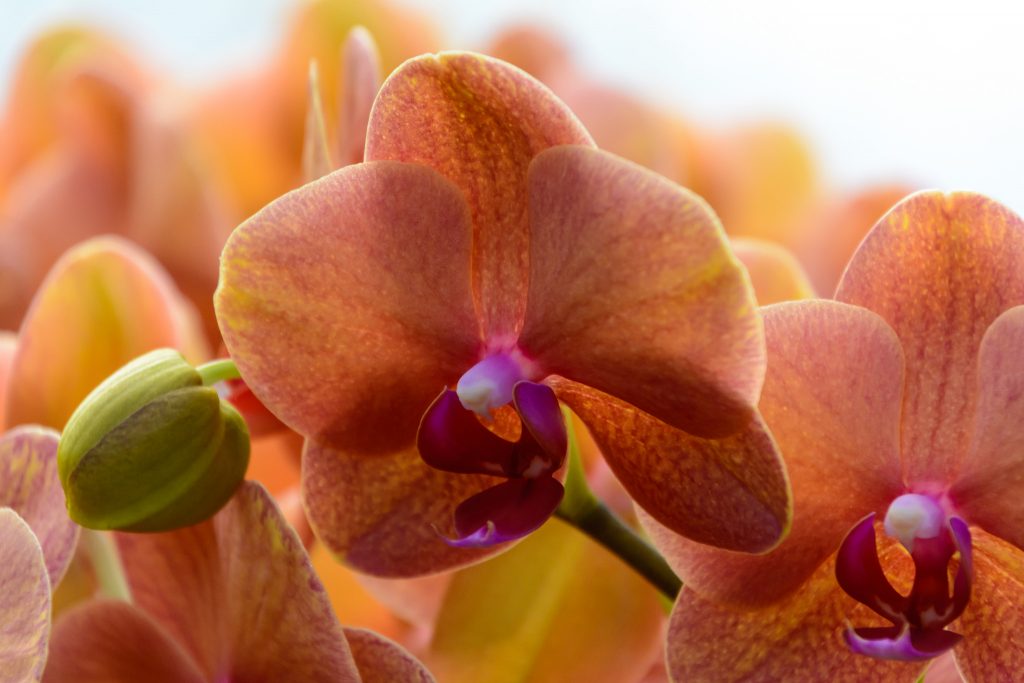
Orchids don’t like being cold any more than you do!
Put ice cubes on orchids to water them. This one won’t go away. It seems like a good idea, right? So why don’t YOU take a bath in ice water? Your orchids don’t like it either. This may have gotten started as a way to prevent people from overwatering by comparing the amount of water your orchids like to the volume of several ice cubes. Melt those ice cubes and let them get to room temperature before you use them.
Poinsettias are poisonous. No. No they are not. Full stop. Just stop it. And ZZ Plants do NOT cause cancer.
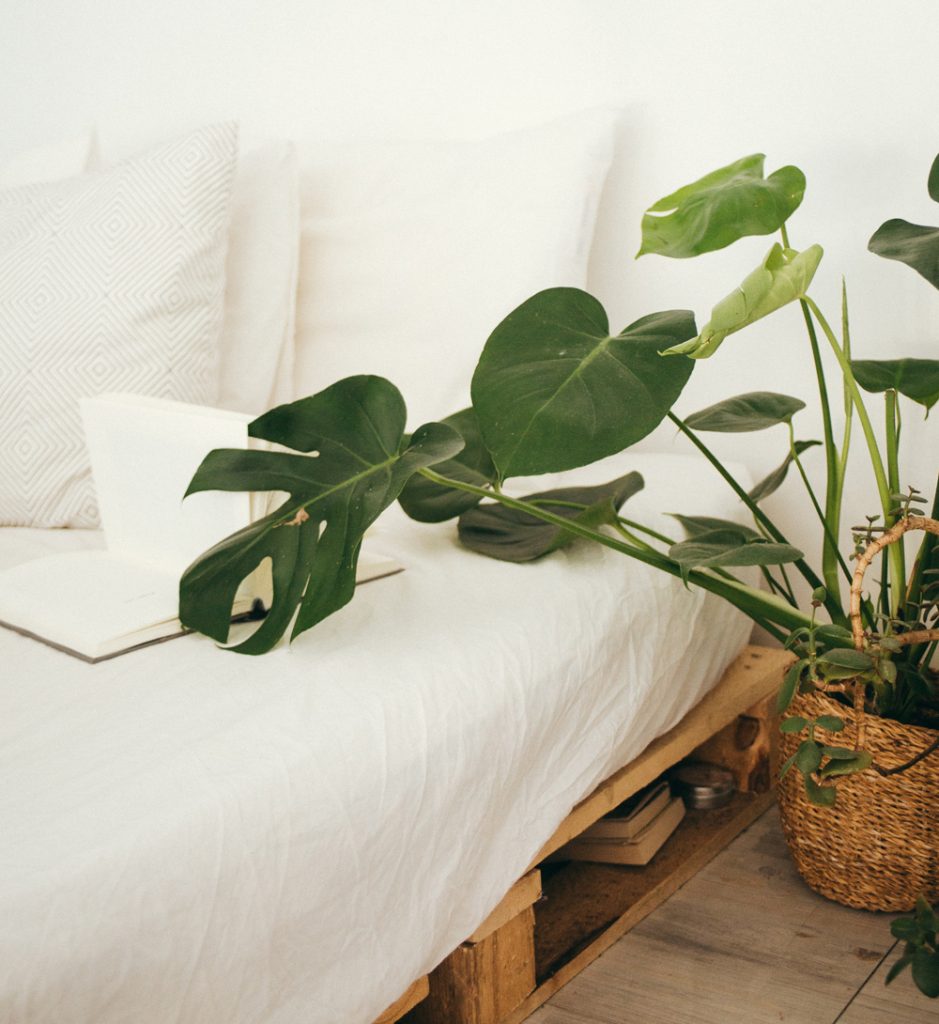
It’s a healthy idea to put plants in your bedroom. They provide healthy oxygen. Photo: Daria Shvetsova / Pexels
Don’t put plants in your bedroom because they suck up all the oxygen in the room. Someone failed middle school biology. Plants PRODUCE oxygen as a byproduct of photosynthesis. They draw carbon dioxide out of the air and combine it with nutrients to produce the ‘fuel’ they need to grow and thrive, and the byproduct they put into the room is oxygen. It’s a great idea to put plants in a bedroom to provide additional oxygen.
Use birth control pills to fertilize your plants. This one came up several times. The idea is that crushing birth control pills and mixing them into water will help your plants grow faster and larger. One of my colleagues said the staff at a client medical office swore it was true. There’s also a myth you can do the same thing to make your Christmas tree last longer. I’m surprised it’s not Viagra. Either way, NO. NONE of this is true. It’s a very expensive, useless idea.
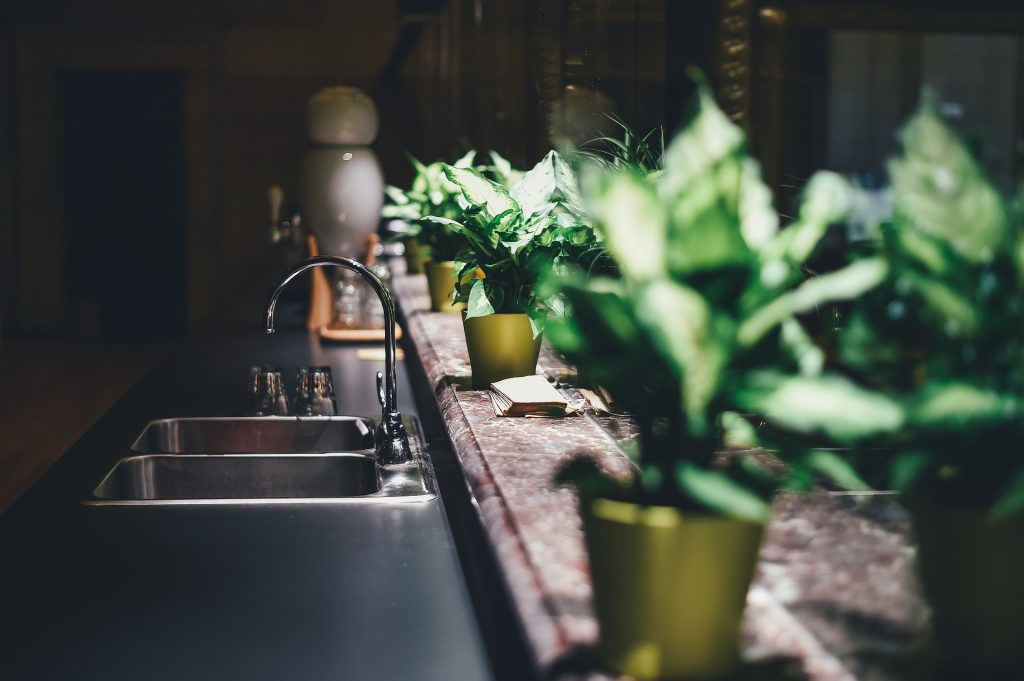
Your plants will enjoy a humid environment like a kitchen, but there is no need to mist them to increase humidity. Photo: Pexels – Pixabay
Misting your plants every week. This one is at least well-intentioned and based in some science. There are many plants who like higher humidity than in the average home. So misting a plant helps, right? It’s not effective – you would need to do this every 10 or 15 minutes, as soon as the mist evaporates and dries. There’s too much air circulating to raise the humidity even a fraction. There are other approaches such as increasing the number of plants (yes please!), adding dishes of water, or how about a humidifier, which is healthy for you too?
Putting coffee grounds, coke, eggshells or other food products in your plants is good for them. No, do NOT put anything other than water in your indoor container plants. Plants grow just in nature without caffeine or sugar added. All you accomplish is drawing insects (see above about putting food on plant leaves).
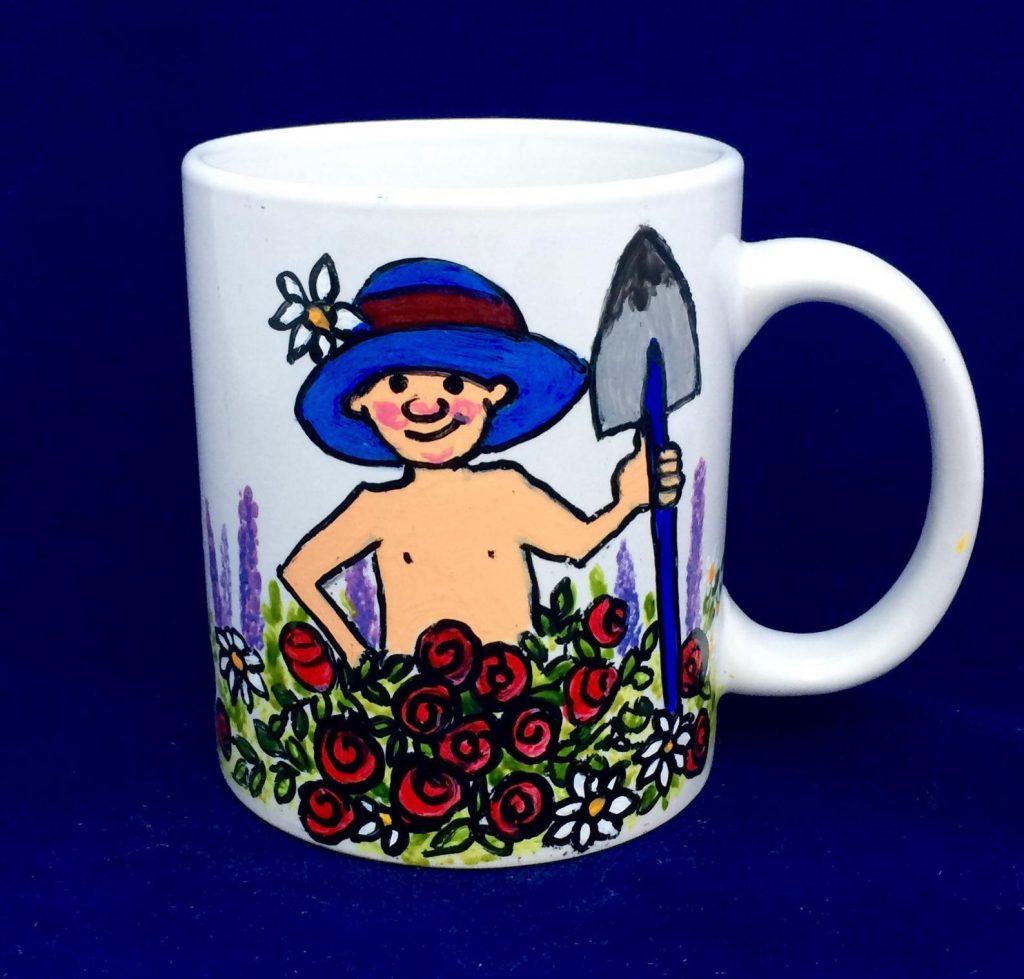
Keep the caffeine to yourself!
I need to share a story from our friend Jan Goodman of the wonderful Cityscapes in Boston. The floor is yours, Jan! “I had a client 38 years ago… and every morning he put his leftover coffee in his cup into his corn plant. It was a beautiful plant. When he retired and it didn’t get its fix every day, the thing declined quickly. Poor corn plant off caffeine, went cold-turkey and couldn’t handle it.”
Put hydrogen peroxide in your plants to cure root rot and mold. If your roots are rotting or moldy, the solution is to stop overwatering! It’s hard to save a plant when it’s gotten to this point and peroxide won’t do it.
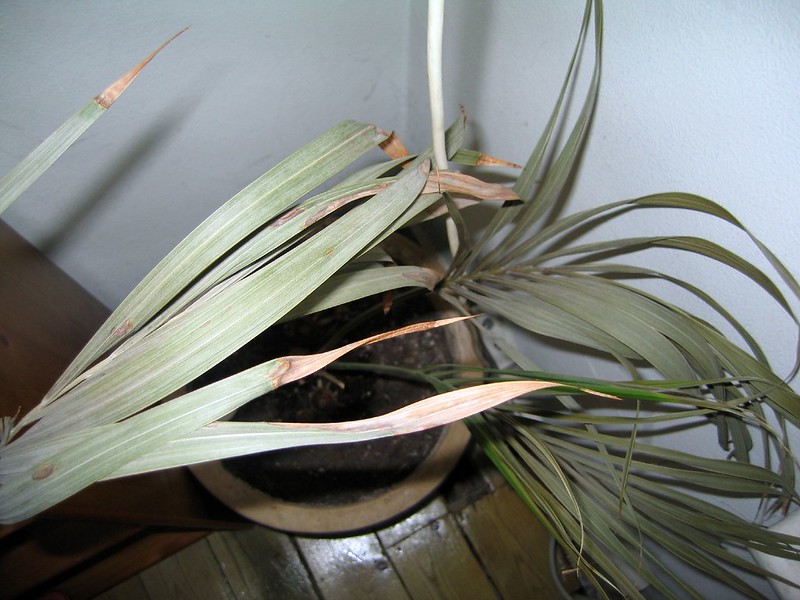
Don’t panic if the leaves on your plants are turning yellow or brown. First, diagnose the possible cause. Photo: Ruth Hartnup / Flickr
Yellow leaves mean your plant needs more water. The most common reason plant leaves turn yellow is because of overwatering, not underwatering – probably 90% of the cases I see are too much water. Check the soil before you drown your plant with love. It can also be due to poor drainage, damaged roots, compacted roots or nutrient deficiencies. So don’t assume water is the answer to this problem.
Plant superstitions. These aren’t exactly plant care urban legends, but they’re fun or funny and worth sharing.
“If you can grow ivy, you’ll never have money.”
“Plant potatoes only on Good Friday.” (OMG, McDonald’s would be out of business).
“Stolen plants grow better.”
“Never say thank you when someone gives you a plant. The plant will die.”
“Never go to a doctor whose office plants have died.” This one I believe! And if this describes YOUR office, you need to contact Good Earth Plant Company stat! Your patients are on life support and need our help.
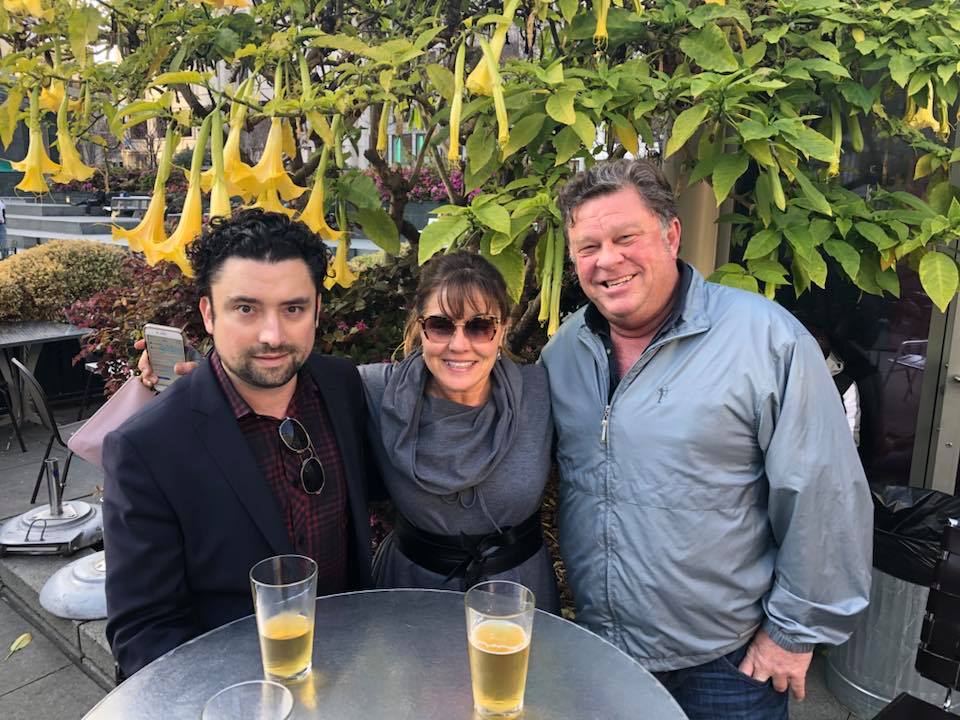
Shane Pliska, Jan Goodman, and yours truly Jim Mumford in pre-pandemic times in San Francisco. Hope our good advice helps you!
H/T and a BIG thank you to all of the contributors to this blog post: Trudy Holzinger Aaronson, Rich Batcho, Erin Cunningham Blake, Marc Champoux, Cindy Doorn-Nylen, Ann Wabiszewski Galletta, Debbie Gelman, Marlie Graves, Tim Higgins, Kevin Kelly, Anne Laird, Linnea McIntyre, Carol Peterson-Webber, Shane Pliska, Sherry Powell, Chris Raimondi, Tracy Martin Reynolds, Jim Ruffing, and Kelly DeRoach Stevenson.
